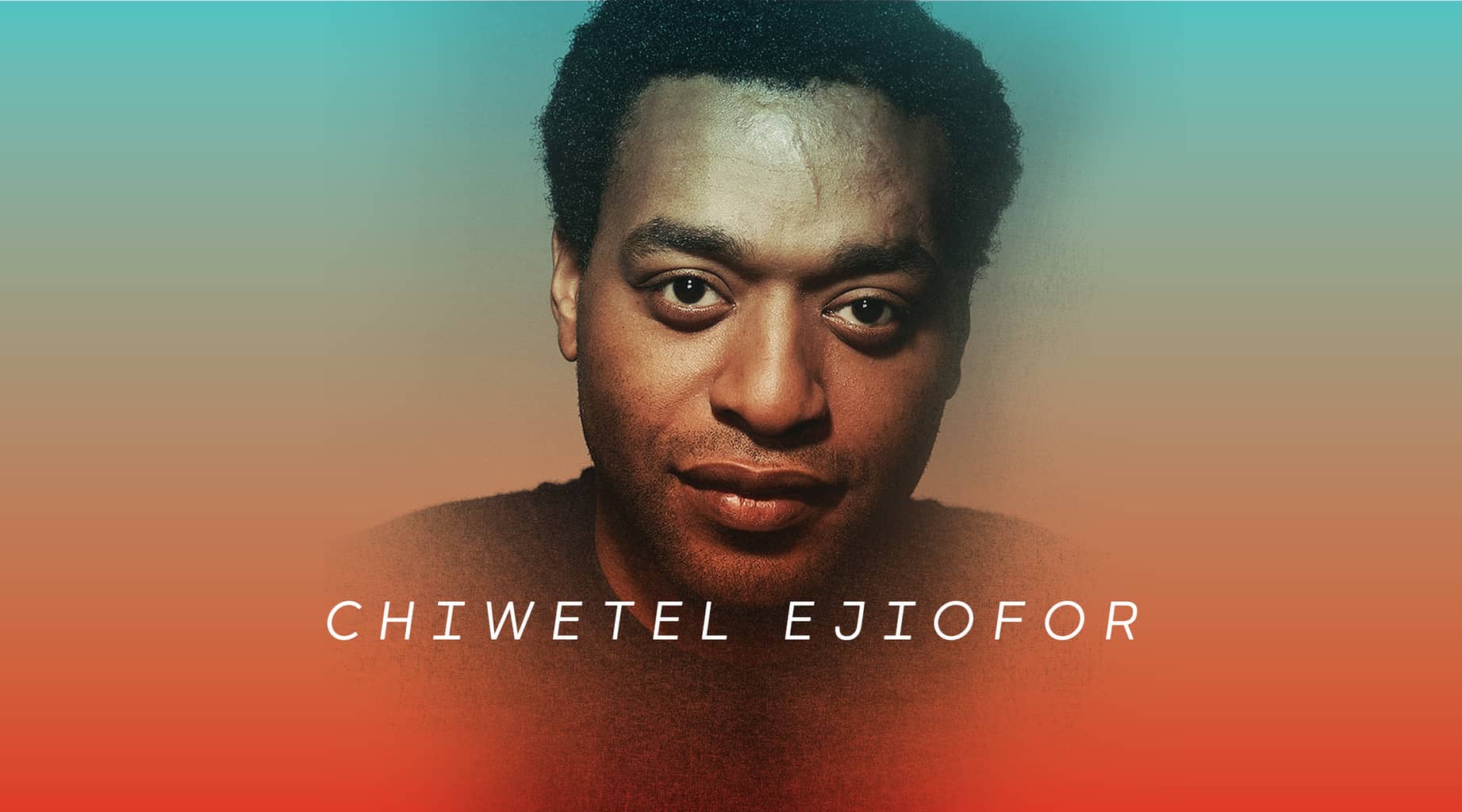
Carlton Pearson was sitting in his home when a news report about starving people in Uganda came on TV.
The megachurch pastor began to pray. Pearson, who described himself at the time as a “fundamentalist, Pentecostal, evangelical” Christian, asked God what he could do to help while images of human suffering flashed on the TV screen.
God, he says, told him that, well, if Christianity works like he thinks it works, then someone needs to preach the Gospel to unbelievers so they don’t go to hell forever when they die. Pearson’s response? He burst into tears, saying, “God, don’t put that guilt on me … I can’t save the whole world.”
What he believes God told him next would alter the course of Pearson’s entire life and serves as the basis of a controversial new film on Netflix called Come Sunday.
Pearson says that in the next moment, God told him: “Precisely. You can’t save this whole world; that’s what we did. You think we’re sucking them into hell? Can’t you see they are already there? That’s hell.”
In that moment, Carlton Pearson, the host of TBN TV shows, a man who counted Billy Graham and Oral Roberts as close friends—stopped believing that hell was a destination that unbelievers go to when they die.
In that same moment, for many in the Church, Carlton Pearson became a heretic.
The film version of these events—and their aftermath—features an all-star cast including Jason Segel (as Pearson’s co-pastor and best friend), Martin Sheen (as Oral Roberts), Chiwetel Ejiofor (as Pearson), Danny Glover (as Pearson’s father), Condola Rashad (as Pearson’s wife, Gina) and many others.
“This man is a very revered and respected man, who has this crisis in his faith,” Ejiofor explains. “And that juxtaposition—of whether to follow that crisis, to pull that thread, knowing it will cause all of this other chaos—and the sense that one is compelled to do that, because it’s his connection to his own relationship with God that is pushing him forward. … [That’s] very, very fertile grounds for a fascinating character.”
But along with examining Pearson’s personal story, the film is concerned with a larger, deeper theme.
What happens when someone in the Church does something that jeopardizes the principles of it? How will a community that’s supposed to be built on the principle of forgiveness react when a pastor does something seemingly unforgivable?
What happens when someone becomes a heretic?
WRESTLING WITH HELL
Chiwetel Ejiofor grew up attending Catholic church, but admits that as he got older, he “drifted away from church.” For him, this film was an opportunity to re-engage his own ideas about faith.
“It was really fascinating for me to approach faith and to approach religion as an adult again and to reintroduce myself to those ideas of spirituality broadly,” he says.
For two decades, the critically acclaimed actor has sought roles that challenge big ideas and present complicated characters like 12 Years a Slave (for which he was nominated for a best actor Oscar), Mary Magdalene (he plays Peter), Children of Men, Amistad and dozens of others.
Come Sunday is no different from those films that wrestle with big, nuanced themes because it not only looks at what Pearson went through but also his church that went through it as well.
“I think that so much of what underpins the story is about community and society and how one engages with their fellow man,” Ejiofor says. “This is an incredible lens with which to look at those relationships and just the social interactions of your life.”
For producer Ira Glass, truly understanding other Christians’ role in the story was critical.
It was really fascinating for me to approach faith and to approach religion as an adult again and to reintroduce myself to those ideas of spirituality broadly
“People were being completely reasonable,” Glass says, when asked about the reaction of Pearson’s fellow Christians in the movie when they learned of his revelation and heard his new unorthodox message. In real life and in the film, his congregants tried to convince him to recant his new beliefs, and re-embrace traditional views about heaven and hell.
“They would be terrible people if they didn’t react that way and try to save him and try to talk him out of it,” Glass says. “I definitely had sympathy for all the Christians who [didn’t] side with Carlton in the story.”
Glass—the creator of podcast and radio series This American Life—is a producer of the film and based the movie on a 2005 episode of the show called “Heretics.”
The movie, in many ways, is about living in a tension: a loving God and an eternal hell, caring for your pastor but hating “heresy,” building community and casting out “false teachers.”
Even today, Pearson himself lives in a sort of tension. He still wrestles with his revelation.
“I’m constantly battling between what my mind believes, which is what I’ve been taught and told my whole life … and what my soul or maybe my cells know,” Pearson says, comparing what he believed for most of his life about exclusion of salvation through Christ and what he now believes.
“There’s some permanent iconoclasms in my psyche. Not in my soul but in my thought-life that I don’t think I’ll ever completely be rid of. So it’s like living in a haunted house and there are boogie men and ghosts that will always be there.”
Even with the deep theological themes, Glass says he didn’t have any interest in making a movie that tried to convince anyone to believe in any kind of doctrine. This is a story that has no “good guys” or “bad guys.” This is a story about a deeply conflicted community.
“I hope a religious audience understands we are just as sympathetic to the people who are telling Carlton it’s not in the book,” Glass explains.
Ejiofor says that he even met Christians who were still sympathetic to Pearson. “I spoke to people who were part of Carlton’s [church], who were still very close to him but just don’t worship alongside him or in the same place,” he says. “They don’t hold malice or ill will toward him. They understand that he went on his journey and for whatever reason they couldn’t follow him on that journey.”
But depending on who you ask, how the Church has dealt with “heretics” in its midst can sometimes be seen as anything but sympathetic.
A HISTORY OF HERETICS
In the wake of Pearson announcing his personal “revelation” to his church, he became something worse than a pariah: He was dangerous. He no longer believed in hell, and others warned, if you joined him in his new worldview, you could risk spending eternity there yourself. Even now, it’s difficult for him to talk about.
“My emotions are still pretty raw around it because I suppressed a lot of the details of it,” Pearson says, looking back. “Over the years, it was too painful to accept as my own reality.”
It’s a feeling many in Christianity have felt. Historically, the Church has not been kind to its heretics.
In the years after Christ, believers openly debated His teachings, while still conscious of His warnings about the dangers of “false teachers.”
But in A.D. 385, things took a dark turn as Christianity became more institutionalized. A man named Priscillian began to preach some unorthodox things about the Gospel and was executed after powerful people deemed his beliefs to be too far from conventional understandings about the Bible. He became the first person to die for heretical beliefs.
Afterward, violence was a frequent reaction to “heretical” sects that arose on the fringes of Christianity. Starting in the 1400s, the Spanish Inquisition tortured, prosecuted and even publicly executed tens of thousands of individuals suspected of being heretics.
Today, heretics within modern American Christianity aren’t likely to face violence or criminal prosecution, but the response within the Church can still be severe. This is partly what was so interesting to Glass.
He said when he first researched Pearson’s story for This American Life, he thought, “I didn’t know that’s a thing that happened to adults.”
Ejiofor says he understands why religious institutions work the way they do, but that it’s complicated to see how the outcasting of a member of a church unfolds. “I don’t know where one lays the finger of blame, if that’s the right expression, of who’s sort of at fault,” he says. “The nature of the religious systems and how they come about sort of dictates certain positions that are held. And I think that trying to find different interpretations is always fraught with complications.”
Glass said the idea that someone could be essentially kicked out of their religion for thinking certain ideas was completely foreign—and fascinating—to him and thought there was something intriguing about “using the technology of the 14th century to solve a problem.”
“Like here in the 21st century, generally if somebody says some stuff you don’t like, you just say you think they’re wrong, and people stop going to their church and they become less popular, and then they have to go off into the sunset,” Glass says. “The technology of discrediting somebody is not to hold a heresy trial, you know? It’s to appear on television and denounce them. It’s just using some very antique technology to kick somebody out of the house.”
If Pearson’s story sounds familiar, it’s because an extremely similar one played out even more recently with another rising star, Rob Bell. He was branded as “the next Billy Graham” by TIME magazine when he first began to make a name for himself as a fairly conventional pastor. But after the publication of the book Love Wins, which also questions traditional teachings about hell, he, too, drew widespread denouncement from major Christian leaders.
“Our situation is almost identical,” Pearson says. Bell, who is the subject of a recent documentary called The Heretic, says his first brush with accusations of heresy actually came much earlier. He was in his early 30s at the time and was the pastor of Mars Hill Church, which he had founded.
I hope a religious audience understands we are just as sympathetic to the people who are telling Carlton it’s not in the book
“I did a whole series of sermons on women’s equality,” Bell says, looking back. “And I remember a whole group of people organized to have me removed from the church I started.”
Hundreds had orchestrated a campaign to discredit his teachings. “That was probably the first time I was on the receiving end of that particular venom that people spew when they believe they are defending the Almighty,” he remembers.
When he concluded the controversial sermon series, he decided to hold a Q&A-style event, hoping that the open forum would foster healthy discussion for people in his church. Instead, angry critics showed up to express their outrage at his teaching.
“People showed up from other states that weren’t even a part of the church I started,” Bell says. “I was brushing up against what happens when you think you’re talking about one thing, but for a number of people, you’re unsettling an entire framework that has political, economic, social [and] family [implications].”
A HAPPY ENDING?
When making this film, Glass and Ejiofor understood just how sensitive the issue of heresy—and figures like Pearson and Bell—can be to many Christians. That’s why their approach wasn’t to try to prove one side wrong. Instead, the story is about people. And one of the most important people in the story is famed evangelist and university founder Oral Roberts. In real life, Roberts was extremely close to Pearson and served as his mentor— that is, before Pearson changed his beliefs about hell.
“It was such a central relationship to Carlton’s life and a relationship that brought him so much joy and connection,” Ejiofor explains. “So to have that kind of stripped away as well as everything else was clearly a very difficult, very painful experience.”
Glass recognizes what “a divisive figure among the secular and religious audiences” Roberts still is, but that’s not the character they wanted to show.
“We very much were trying to portray him the way people close to him saw him—really, like to give him credit,” Glass says.
Glass notes that Roberts was socially progressive in many ways that are often forgotten in light of the scandals that followed parts of his ministry.
“He was an early and forceful advocate for integrating the Church and getting black people and white people praying together like way before his time,” Glass explains.
The approach to making a figure like Oral Roberts so down-to-earth, to make a topic like heresy so emotional and to make a place like church so relationally rich, makes the subject at the core of the film—the existence of hell—so opposite of what it has become for Christians: polarizing.
Instead, they’ve set out to show what it’s like to deal with the issue in a way that truly explores the tension of what it’s like to deal with a topic with literal eternal consequences.
“My fear with the film is that evangelicals will know it’s about Bishop Pearson, and they’ll feel like, ‘I don’t support what he stands for, so I’m not going to see it,’” Glass says. “My hope would be that they would come out and see it and realize it’s not just a story about him. It’s a story about everybody in the Church … We think there should be more stories in the Church.”
Ejiofor agrees that the film isn’t about arguing about doctrine; it’s about connecting with people who think differently.
When asked what he hopes people will take away from the story, he says, “It’s people’s capacity to change and people’s capacity to connect with one another—the capacity to have empathy and engage with other people with other points of views.”
It’s a story he believes is important to tell, even if he catches hell for it.






















